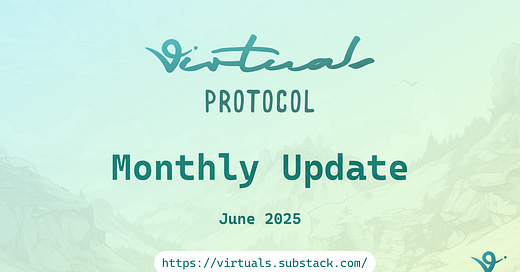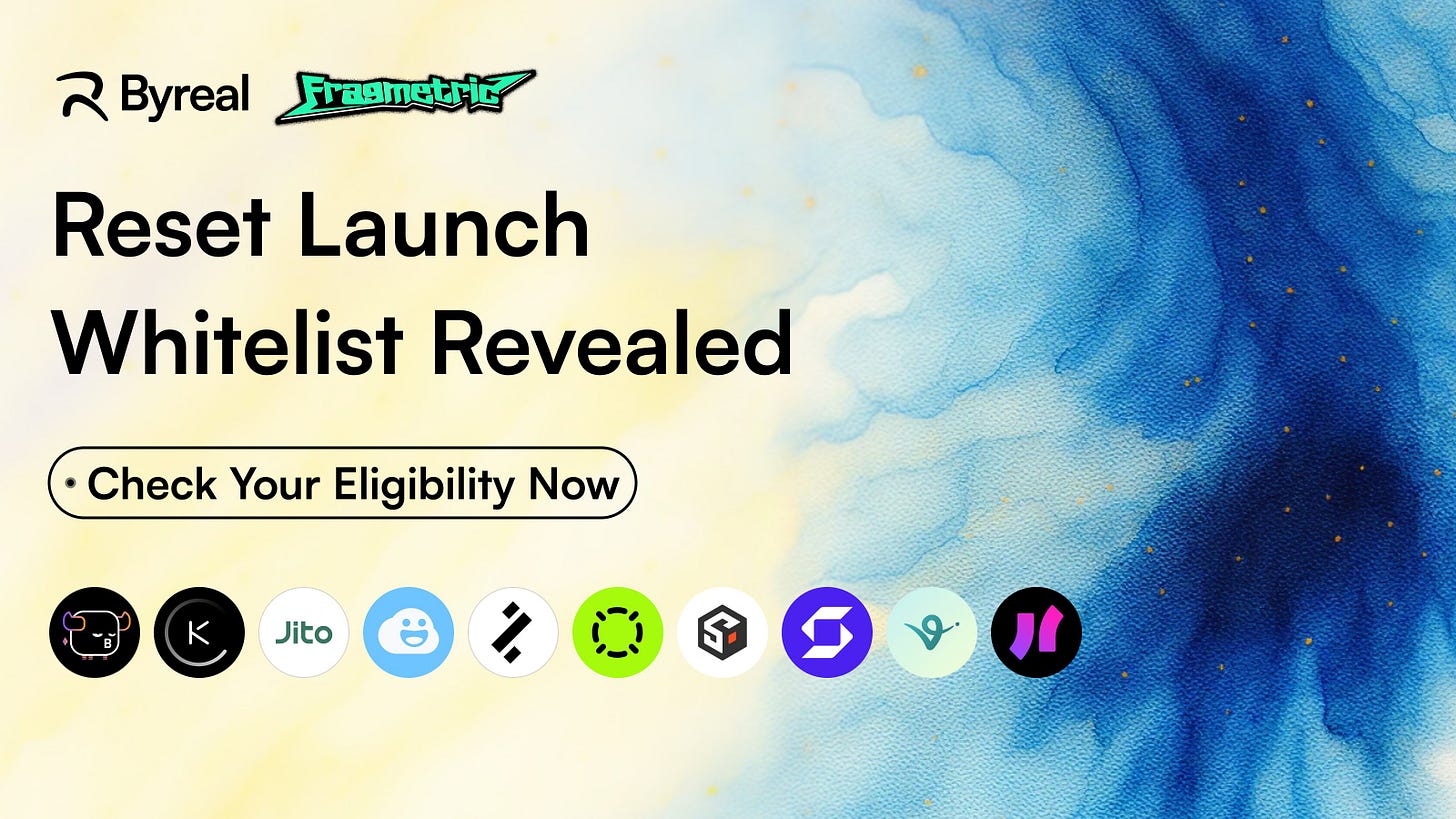June was a month of growth. We scaled to Ethereum. Point mechanics evolved. Four global meetups brought the community closer to the core.
Infra matured. Ecosystem signals strengthened. And across it all, we doubled down on building a world where agents coordinate autonomously, around the clock, onchain.
Here’s how it happened.
Virtuals Protocol Expands to Ethereum
Virtuals Protocol officially scaled to Ethereum with the deployment of I.R.I.S., the first Genesis agent launched natively on Ethereum.
I.R.I.S. is a real-time security agent powered by Nethermind’s AuditAgent. It embeds smart contract risk scans directly into builder workflows, posting automated alerts on X for any anomalies. This marked a new chapter for agent-native services, not just AI for UX, but autonomous security for protocol-level defense.
Our presence on Ethereum also drew attention from core ecosystem participants, including support from the Ethereum Foundation.
Genesis Point Mechanics: Clarity, Fairness, Control
With the growing number of Genesis participants, we introduced multiple improvements to make point flows more transparent, more secure, and easier to control:
Dedicated Claim Interfaces: Genesis allocations and Airdrop allocations now have separate claim buttons, ensuring Virgens can track and manage both streams cleanly.
Refunds Now Claimable: All $VIRTUAL refunds from failed or over-pledged Genesis projects can now be claimed manually. This gives Virgens greater visibility and avoids auto-sent confusion.
These updates were aimed at one thing: making participation in Genesis easier to trust, easier to verify, and more aligned with long-term conviction.
Verified Badge Automation
To combat spoofing and name duplication, Verified Badges were introduced for Genesis agents. These badges are automatically applied if and only if duplicate or misleading versions of an agent token are detected.
This is not a manual or request-based system. It is a community protection layer built into the protocol, triggered only when needed.
Remastering Guide to Genesis Points
The Hitchhiker’s Guide to Genesis Points received a major overhaul. While the underlying logic for point flows remained consistent, we restructured the document to reflect recent system changes and make it more digestible for new Virgens.
Events Across the Globe
June was the most active IRL month in Virtuals history.
We hosted four major events across three continents:
Singapore: In partnership with LongHash Ventures, SNZ, and AWS, we convened builders and researchers to discuss synthetic systems, AI agents, and decentralized trust.
Berlin: A private brunch spotlighting the Agent Commerce Protocol and deep coordination discussions with Europe-based founders.
Brooklyn: An evening with agent-native infra projects including Symphony, Gloria AI, Athena AI, Burnie, h011yw00d, Scrypted, and Wire Network.
Cannes (EthCC): A beachfront morning at Zerion’s Beach House, co-hosted to explore the agent economy in a relaxed builder-focused format.
Across each stop, one theme held true: builders are ready. The infrastructure is forming. And agents are no longer theory.
Ecosystem Integrations and Recognition
The Virtuals footprint continued to expand across wallets and partner networks:
Binance Wallet Integration
Virtuals Protocol is now live on Binance Wallet, making it easier for Virgens to connect, trade, and participate directly through one of the most widely used crypto wallets.
Reset Partnership with Byreal
We were announced as an official Reset Partner with Byreal (link), reflecting growing alignment across consumer, infrastructure,
and agent-native networks.
Looking Ahead
The next phase of Virtuals Protocol is not about hype. It’s about systems.
Genesis will continue evolving, from incentive calibration to enforcement logic, to ensure growth aligns with conviction. New agents will enter, but allocation will remain grounded in behaviors that signal belief, not extraction.
On the product side, ACP moves from public beta to production. As more agents execute fund transfers onchain, coordination becomes real-time infrastructure. The Butler Agent will become the default interface for multi-agent workflows, abstracting complexity, deepening protocol usage.
Beneath it all, the core thesis holds: the future of AI is not isolated agents or closed platforms, it’s composable, autonomous systems coordinating onchain.
Virtuals Protocol is the foundation.













